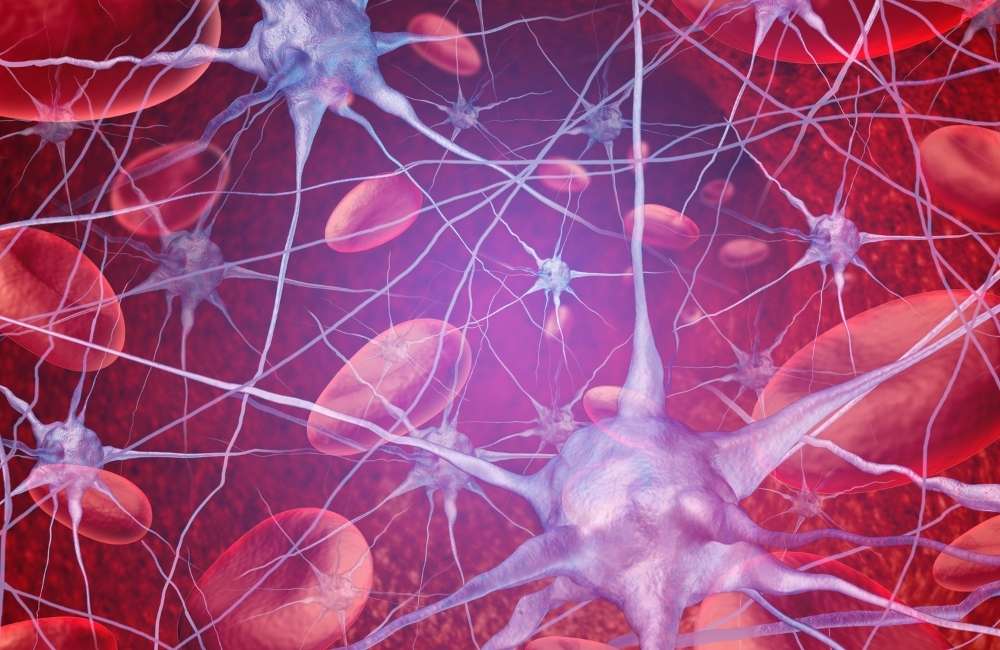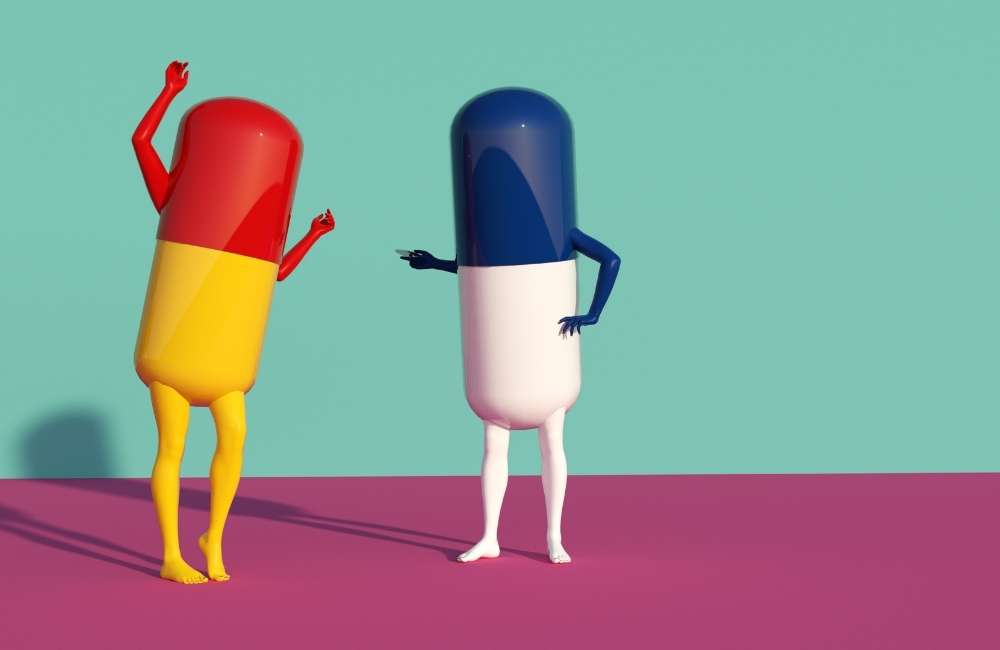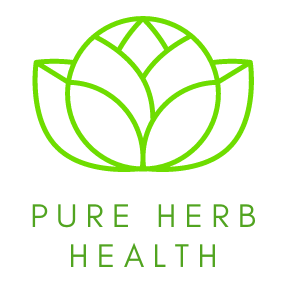Ginkgo biloba, commonly known as ginkgo or ginkgo is a large tree with fan-shaped leaves. It is also known as the maidenhair tree or silver apricot. The ginkgo tree is thought to be one of the oldest living trees, dating back more than 200 million years. It is native to China, Japan and Korea but it is also now grown in Europe and the United States. It is the last living species in the order of Ginkgoales, which appeared over 290 million years ago.
Traditional Uses of Ginkgo Biloba
Ginkgo has been around for so long and as long as it has been around, people have used it for many medicinal purposes traditionally. The medicinal uses can be traced back to ancient China.
Ginkgo nuts were traditionally used for coughs, and fever, for stopping diarrhoea, toothaches, skin diseases and gonorrhoea, and also for reducing the frequency of micturition in the overactive bladder.
The ginkgo leaves were used for brain disorders, circulatory disorders and respiratory diseases as traditional Chinese medicine. Fallen leaves of ginkgo were used as insecticides and fertilizer.
It is commonly taken by mouth for memory and thought problems, anxiety, vision problems, anxiety, and many other health conditions but so far, there is no good scientific evidence to support most of these uses.
Phytochemical Content of Ginkgo Biloba
Ginkgo biloba leaves contain high levels of bioactive compounds such as those listed below:
- Flavonoids
-
- Quercetin, kaempferol, isorhamnetin, rutin, luteolin, delphidenon, myricetin.
- Bioflavonoids
-
- Ginkgetin, isogikgetin, amentoflavone, bilobetin, sciadopitysin.
- Polyphenols
- Organic Acids
-
- Benzoic acid derivatives (ginkgolic acid)
- Terpenoids
-
- Diterpenes (ginkgolides A, B AND C)
- Bilobalide
Health Benefits of Ginkgo Biloba Leaves
-
Strong Antioxidant Activity
Ginkgo contains high levels of flavonoids and terpenoids, which are compounds known for their strong antioxidant effects. Antioxidants neutralize the damaging effects of free radicals, which have the potential to damage healthy tissues thus contributing to accelerated ageing and disease development.
This then means that due to the strong antioxidant activity of ginkgo, it can be used in the treatment or management of many disease conditions.
A lot of research work has gone in here and the antioxidant effects are promising in the health sector but it remains unclear how it works and how effective it may be at treating specific diseases.
-
High Anti-inflammatory Activity
Inflammation is part of the body’s natural response to injury or invasion by a foreign substance. In inflammatory response, various components of the immune system are recruited to fight against the foreign invader or heal the injured area.
Some chronic diseases trigger an inflammatory response even when there is no illness or injury present. Over time, this excessive inflammation can cause permanent damage to the body’s tissues and DNA.
Ginkgo biloba extract has shown significant anti-inflammatory activity in these inflammatory disease conditions: Arthritis, Irritable Bowel Disease (IBD), Cancer, Heart disease and Stroke.

-
Helps to Improve Circulation and Heart Health
Ginkgo can increase blood flow to various parts of the body by promoting the dilatation of blood vessels and may have applications for the treatment of diseases related to poor circulation.
In traditional Chinese medicine, ginkgo seeds were used to open “channels” of energy to different organ systems, including the kidneys, liver, brain and lungs.
Studies have shown that ginkgo has protective effects on the heart, and brain and in stroke prevention. This may equally be due to the anti-inflammatory property of some of the content of ginkgo.
-
Helps to Reduce Symptoms OF Psychiatric Disorders and Dementia
There has been repeated evaluation of the ability of ginkgo to reduce anxiety, stress and other symptoms associated with Alzheimer’s disease and cognitive decline associated with ageing but there have been divergent results as some showed a marked reduction in the rate of cognitive decline in people with dementia, but others did not show the same result.
More research is needed in this area but the positive results seen could be attributed to the role ginkgo may play in improving blood flow to the brain, especially as it relates to vascular types of dementia.
It cannot be concluded that ginkgo treats Alzheimer’s and other forms of dementia, but it might help in some cases. The chances of the possibility of helping are increased when combined with other conventional treatments for Alzheimer’s.
-
Eye Health
Ginkgo biloba has shown promise in the treatment of glaucoma and other eye diseases. Ginkgo contains some bioactive compounds that can act as antioxidants and can also improve blood flow. These properties of ginkgo have been shown to reduce retinal degeneration; improve colour vision improvements for patients with diabetic retinopathy.
-
Premenstrual Syndrome (PMS)
Ginkgo may help relieve premenstrual syndrome(PMS) symptoms. Studies showed that women taking ginkgo for PMS showed marked relief and reduction in symptoms more that the persons that took a placebo.
-
Sexual Health
Ginkgo affects both female and male sexual health. It has been shown through some studies that ginkgo biloba generally has a positive effect on all four phases of the sexual response cycle: desire, excitement (erection and lubrication), orgasm, and resolution (afterglow).
In women’s sexual health, ginkgo biloba extract facilitates blood flow, influences nitric oxide systems, and has a relaxant effect on smooth muscle tissue. These processes are important in the sexual response in women and, hence, it is feasible that ginkgo may have a therapeutic effect.
-
Anxiety
Research works indicate that taking ginkgo supplements reduces symptoms of anxiety though this is likely due to its antioxidant content.
-
Depression
Ginkgo has been shown to help in the treatment of depression by reducing symptoms. This action is largely due to its anti-inflammatory properties, which improve the body’s ability to cope when stress hormone levels are high.
Ginkgo Biloba is Possibly Ineffective for the Conditions Below:
- The decline in memory and thinking skills that occurs normally with age
- Sexual problems caused by antidepressant drugs.
- Taking ginkgo by mouth does not reduce the chance of having a heart attack, chest pain or stroke in elderly people.
- The decline in memory and thinking skills in people treated with cancer drugs like chemotherapy in people being treated with breast cancer.
- High blood pressure does not reduce in older people even on ginkgo leaf extract for years.
- Taking ginkgo leaf extract does not improve mental function or disability in people with multiple sclerosis(MS).
- Ringing in the ear.
Side Effects of Ginkgo Biloba
-
Side effects of Ginkgo Leaf Extract
Ginkgo leaf extract is generally safe for most people when taken orally within the recommended dosage. It can cause some minor effects such as:
-
- Stomach upset.
- Headache.
- Dizziness.
- Allergic skin reactions.
- It might increase the risk of bruising and bleeding.
- It might cause arrhythmia.
-
Side effects of Roasted Seed or Crude Ginkgo Plant
These are possibly unsafe when taken by mouth. Eating more than 10 roasted seeds daily can cause serious side effects such as seizures while eating fresh seeds may lead to death. They are poisonous and considered dangerous.
Precautions and Warnings
- Pregnancy: Ginkgo is not safe in pregnancy when taken by mouth. It might induce early labour or extra bleeding during delivery if used close to the delivery time.
- Breastfeeding: There is not enough information on this but it is wise to avoid use in breastfeeding mothers.
- Children: Ginkgo leaf extract is possibly safe in children when taken by mouth for a short duration of time but the fresh seeds when eaten by children can cause seizures and death in children.
- Bleeding Disorders: People with bleeding disorders should just avoid ginkgo as it may worsen the condition.
- Cross-reactivity: People that are allergic to poison ivy, poison oak, poison sumac, mango rind, or cashew shell oil might be allergic to ginkgo biloba too.
- Diabetes: Ginkgo might interfere with the management of diabetes. If you have diabetes and you must take ginkgo, then you have to monitor your blood sugar closely.
- Seizures: Ginkgo might cause seizures. If you have a history of seizures in the family or have had one before, you don’t need to use ginkgo.
- Glucose-6-Phosphate Dehydrogenase (G6PD) Deficiency: Ginkgo might cause severe anaemia in people with G6PD enzyme deficiency. It is better to avoid using it in this group of people.
- Infertility: Ginkgo might interfere with conception. Please consult your doctor if you want to use but still want to get pregnant.
- Surgery: Ginkgo might slow blood clotting. It might cause extra bleeding during and after surgery. Ginkgo is better to be discontinued at least two weeks before a scheduled surgery.
Major Interactions of Ginkgo Biloba With Meds

- Efavirenz / Ginkgo Interaction: Efavirenz is a medication used for treating HIV infection. When it is taken together with ginkgo extract, the effects of efavirenz are decreased. Talk to your doctor if you are on efavirenz before taking ginkgo.
- Talinolol / Ginkgo Interaction: Talinolol is a cardioselective beta-receptor antagonist which has been used for a long time in the treatment of various cardiovascular diseases and tachyarrhythmia.
It was discovered that taking ginkgo leaf extract multiple times per day might increase levels of talinolol thereby increasing the effects and side effects of talinolol but taking a single dose of ginkgo does not seem to affect talinolol levels.
Moderate Interactions of Ginkgo Biloba With Meds
It is advisable to be cautious with the combinations below:
- Ibuprofen / Ginkgo: The two can slow blood clotting and therefore should not be taken together.
- Alprazolam / Ginkgo
- Medications Changed by (Cytochrome P4501A2 (CYP1A2) Substrates) / Ginkgo: Some medications are changed and broken down by the liver. Ginkgo might change how quickly the liver breaks down these medications. This invariably could change the effects and side effects of these medications.
- Antidiabetic Drugs / Ginkgo
- Anticoagulant or Antiplatelets Drugs / Ginkgo
- Anticonvulsants / Ginkgo
- Trazodone / Ginkgo
- Warfarin / Ginkgo
- (Artovastatin / Simvastatin) / Ginkgo
- Risperidone / Ginkgo
Minor Interactions of Ginkgo Biloba With Meds
- Omeprazole / Ginkgo: Taking these two together might decrease how well omeprazole works.
- Nifedipine / Ginkgo: Taking both by mouth can cause increased nifedipine levels in the body thereby increasing the side effects of the drug, nifedipine.
Ginkgo Biloba Preparations
Products that have been studied the most are often standardized to contain ginkgo leaf extracts. Ginkgo usually comes as supplements in capsules, tablets, liquid extracts and dried leaves/tea. Speak with your healthcare provider to find out what dose might be best for a specific condition.
Quality issues are common and concern manufacturers of ginkgo. Some manufacturers may use cheaper ingredients like rutin and quercetin which occur naturally in ginkgo, instead of ginkgo. Be careful to choose products from genuine manufacturers.
Conclusion
In conclusion, ginkgo biloba contains bioactive compounds that have anti-inflammatory and antioxidant capacities and an ability to improve circulation.
Together, these characteristics have the potential to affect numerous body systems and diseases, although science has not yet justified all these claims for centuries, ginkgo has been used but it is not completely understood how it works.
Ginkgo could lead to serious health complications if you are allergic or taking certain medications. It is advisable, just as it is for other herbal products to always check with your doctor first if you want to add it to your regimen.
This article is strictly meant for educational purposes, not for you to dump your prescription drugs or use them as supplements without consulting your doctor. Thank you as we continue our exposition of nature’s benefits to humanity.

